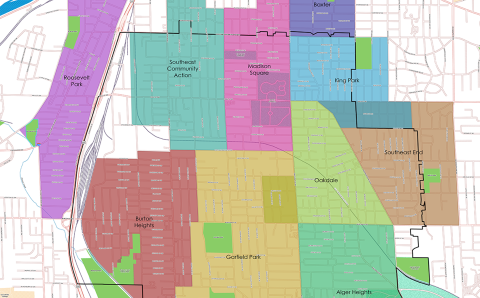In my teens, I was confused about the place of good works in the life of Christians. I could articulate the truths of Ephesians 2:8-9—that I was saved by grace through faith and not by good deeds. After all, I sang “Amazing Grace” every other Sunday! I knew this truth in my heart, but when confronted with the Sermon on the Mount, the Ten Commandments, and other scriptural commands, I experienced a deep sense of guilt and inadequacy. Maybe you do too.
One of the things that most attracted me to the Reformed faith when I was in my early twenties was its understanding of good deeds as acts of thanksgiving to God.
Q&A 86 of the Heidelberg Catechism asks, “Since we have been delivered from our misery by grace through Christ without any merit of our own, why then should we do good works?” The answer: “Because Christ, having redeemed us by his blood, is also restoring us by his Spirit into his image, so that with our whole lives we may show that we are thankful to God for his benefits.”
In fact, according to Paul, God created us for lives full of grateful good deeds. What a relief! Instead of facing the guilty tyranny of “should haves,” grace empowers Christians for thankful acts of joyful obedience.
This attitude of thankfulness is especially important when it comes to service. Jesus tells us some sobering things about serving God:
- To the one who, after being called by Jesus, asks to first go back and bury his dead father or say goodbye to his family, Jesus says, “No one who puts a hand to the plow and looks back is fit for service in the kingdom of God” (Luke 9:62).
- A metaphor Jesus often uses for service is cross-bearing: “Whoever wants to be my disciple must deny themselves and take up their cross and follow me” (Mark 8:34).
- Jesus warns his disciples that serving him will be costly: “A servant is not greater than his master. If they persecuted me, they will persecute you also” (John 15:20).
- Don’t forget Luke 17:7-10, which says in part, “So you also, when you have done everything you were told to do, should say, ‘We are unworthy servants; we have only done our duty.’”
How does gratitude connect to this kind of gritty and costly service?
I had a few tough bosses in my younger years, and I’ll tell you that serving egotistical, selfish, and arbitrary people is tough and thankless work. Thankfully, this is not so with our master. First, Jesus gave up his own life to save us. Second, our master doesn’t ask us to do anything he himself hasn’t already done. He also doesn’t send us alone. He sends us with his Holy Spirit to guide and sustain us. Finally, he doesn’t send us as servants, but as his own beloved children, heirs to his kingdom.
Gratitude, then, is the primary and default posture of serving in God’s kingdom. But that doesn’t mean it will be easy. In fact, Jesus cautions us that there will be times when serving is going to hurt. But at the end of it all is Jesus—our master, Lord, and brother—with his arms outstretched, welcoming us home and saying, “Well done, good and faithful servant.”
It is a blessing and a pleasure for the staff, agencies, and institutions of the Christian Reformed Church in North America to serve all of you. It can have its tough moments, but serving Christian Reformed congregations and members is deeply meaningful and significant work that we are privileged to do. I hope you enjoy these stories of your denominational ministries serving you in the name of Christ Jesus.
About the Author
Rev. Zachary King is the general secretary of the CRCNA. He is a member of Cascade Fellowship Christian Reformed Church in Grand Rapids, Mich.









